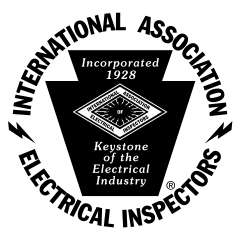Even if you know the difference between a ground rod and a two gang, avoid acting likea home inspector.In my 11 years in the real estate business, I’ve learned a great deal about home inspections,having attended dozens of them. I’d like to think that I know more than the average Joe about the red flags to look out for when buying a home.But when I tout my services to prospects and clients, I’m careful to never make any suggestionthat I’m capable of home inspection. Just as I’m not qualified to give legal advice, I’m not qualified to be an inspector—nor am I insured to behave like one. But more and more I hearagents making statements that should be made by an inspector, increasing their own liability aswell as their company’s.
I’ve been tempered by lawsuits against practitioners who expounded that the basement was dry or that the foundation was solid. Over time I’ve learned: Don’t climb among the attic rafters extolling their virtues. Sure, I may point out that the electrical supply is 100 or 200 amps—if I’m absolutely certain—but I don’t remove the circuit panel cover and identify the double taps. In fact, the one time that I did put “200 amp service” in my listing description, I later found out (when the buyer had a real inspection) that the home had only 100 amps. Guess who had to pay for an upgrade to 200 amps? I no longer even fill out the MLS field identifying amperage of theelectrical system.
If there’s an obvious trouble spot or if my client asks my opinion about the condition of the home, I may make some very general observations, but I’m always sure to follow up with, “If this is a home that you have an interest in, you should be certain to have your inspector check this out.” I leave it to my clients, but if they don’t know whom to call, I have a stable of good inspectors that I regularly recommend. There are plenty of horror stories that keep me on the straight and narrow.
One agent I know followed her client downstairs to the basement during a showing, and as part of the conversation, casually commented, “Hmm, the basement smells dry.” Looking around, she further mentioned, “and it looks dry too.” Months later, as the new owners watched their boxes and belongings bob along in their flooded basement, they decided to sue the agent based on her statement. Surprise, surprise—the home owners won because, as the court put it, the agent was displaying “behavior like an inspector” when she made those comments and her buyers had come to rely on her opinions.
An inspection company in my area recently started offering a free continuing education class to real estate practitioners as a way to promote its inspection services. Salespeople are exposed to real-world inspection issues and are taught how to spot some common home problems. Attending even one of these classes is playing with fire, in my opinion. I don’t want to tell a client, based on what I learned in one class, that something is or is not a problem. I’ll leave that to professionals who are certified.
Over the years I have assembled a team of licensed and certified professionals in a range of other fields—law, plumbing, appraisal, to name a few—who nicely complement and supplement my services. I’ve found that my clients appreciate that I can connect them with qualified professionals, and my broker-manager appreciates that I’m not exposing our company to
lawsuits.
I know how tempting it is to want to be the ultimate one-stop shop for your clients, but I urge you to instead perfect the line: “That’s a good question to ask your inspector.” Your broker will be happier, your E&O insurance carrier will thank you, and your inspector won’t have to explainto your buyers why their real estate agent was wrong about the basement.









